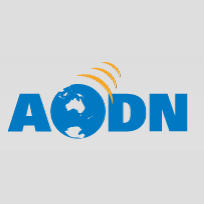Full description
The Marine chapter of the 2016 State of the Environment (SoE) report incorporates multiple expert templates developed from streams of marine data. This metadata record describes the Expert Assessment "Effectiveness of marine management of shipping". The full Expert Assessment, including figures and tables (where provided), is attached to this record. Where available, the Data Stream(s) used to generate this Expert Assessment are accessible through the "On-line Resources" section of this record.----------------------------------------
DESCRIPTION OF THE PRESSURE BEING MANAGED, AND ITS IMPACT
A total of 26936 ships arrived at Australian ports during 2014, 9.8% of those arrived at Port Hedland, 9.3% at Brisbane, 8.1% at Newcastle, 7.3% at Melbourne and 6.8% at Dampier.
--Operational discharges--
Environmental regulation of shipping is regularly reviewed and amended to strengthen environment protection and reduce the environmental impact of shipping globally through the International Maritime Organisation (IMO). Some recent amendments to international law of significance include:
• MARPOL Annex V amendments which tighten the controls on discharge of garbage at sea.
• Amendments to Annex VI of MARPOL which introduces technical and operational controls on greenhouse gas emissions from international shipping.
--Marine invasive species--
Due to a range of concerns about technical feasibility and efficacy of the available technology, the 2004 International Convention on the Control and Management of Ships’ Ballast Water and Sediments is yet to enter into force. The required entry into force criteria (ratification by 30 States, representing 35% of world tonnage) is likely to be met in 2016 which means that the convention will enter into force in 2017.
The International Guidelines for the Control and Management of Ships' Biofouling to Minimize the Transfer of Invasive Aquatic Species, were adopted in 2011. While voluntary, the Guidelines provide a basis upon which to further promote a best practice approach to biofouling management for the prevention of marine pest incursions.
A review of Commonwealth marine pest policy in Australian has recently been concluded which, along with the implementation of the new Biosecurity Act 2015, should lead to some advances in and a more nationally consistent approach to domestic marine pest policy and legislation relating to shipping.
--Domestic shipping management--
A number of significant changes have taken place since 2011 in relation to the management of shipping around the Australian coast with a view to increasing environmental protection.
• Designation of the Coral Sea Particularly Sensitive Sea Area
• Extension of the Great Barrier Reef compulsory pilotage area
• Review of the National Plan for Maritime Environmental Emergencies
• Development of the North East Shipping Management Plan
DATA STREAM(S) USED IN EXPERT ASSESSMENT
Data contained in sectoral reports, information on national and international guidelines, protocols and the MARPOL convention. Details of the specific data sets used to generate this assessment have not been provided.
2016 SOE ASSESSMENT SUMMARY [see attached Expert Assessment for full details]
• Understanding of pressure: Good understanding of potential impacts.
• Planning associated with management of pressure: Good level of national and international coordination to manage impacts.
• Input for informing management of pressure: Strong management systems remain in place.
• Processes associated with developing, monitoring, and updating management: Shipping management systems continue to provide effective protection in most areas, with some gaps relating to marine pest management.
• Outputs from management framework in place: Ongoing management is needed to ensure that best practice procedures remain in place.
• Outcomes of management framework in place: Shipping management needs to be adaptable to changing shipping patterns.
CHANGES SINCE 2011 SOE ASSESSMENT
New guidelines have been developed, a new biosecurity act put in place, changes to sensitive sea areas and compulsory pilotage areas and a review of the National Plan for Maritime Environmental Emergencies has occurred.
Lineage
Statement: QUALITY OF DATA USED IN THE ASSESSMENT Good.Notes
PurposeTo describe the effectiveness of marine management of shipping for use in the Marine chapter of the 2016 State of the Environment report.
Created: 17 06 2016
text: westlimit=102.65625000000001; southlimit=-47.4609375; eastlimit=162.421875; northlimit=-7.207031249999999
Subjects
User Contributed Tags
Login to tag this record with meaningful keywords to make it easier to discover
Other Information
EXPERT ASSESSMENT - Effectiveness of Marine Management of Shipping [direct download] (Management_shipping_final.pdf)
(State of the Environment (SoE) reporting webpage)
url :
https://www.environment.gov.au/science/soe![]()
global : 436e580e-ff33-4d15-a39c-b04c7d65083c
Identifiers
- global : 92d85a56-6d19-4d89-9c70-ac3cc8459923


